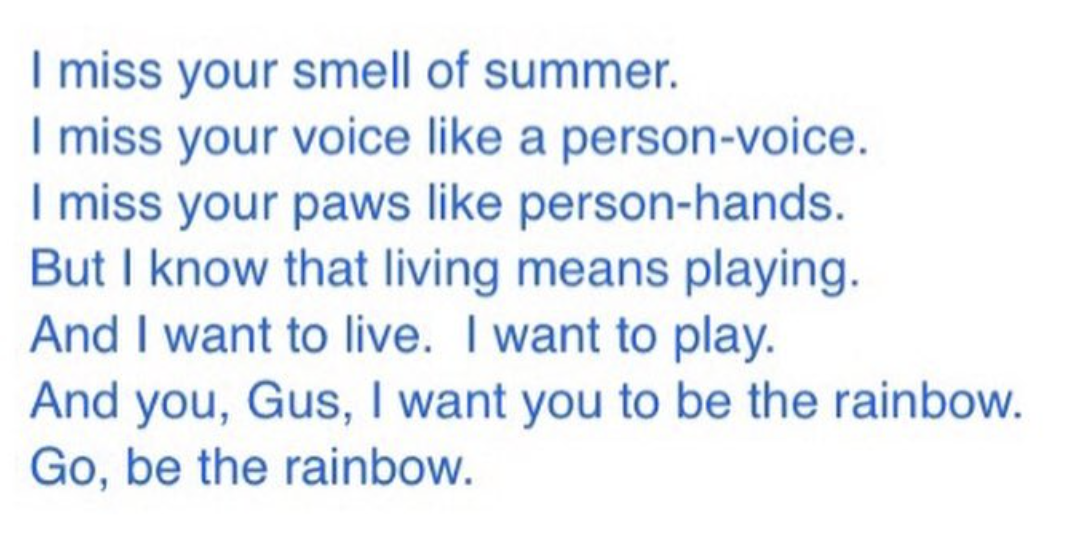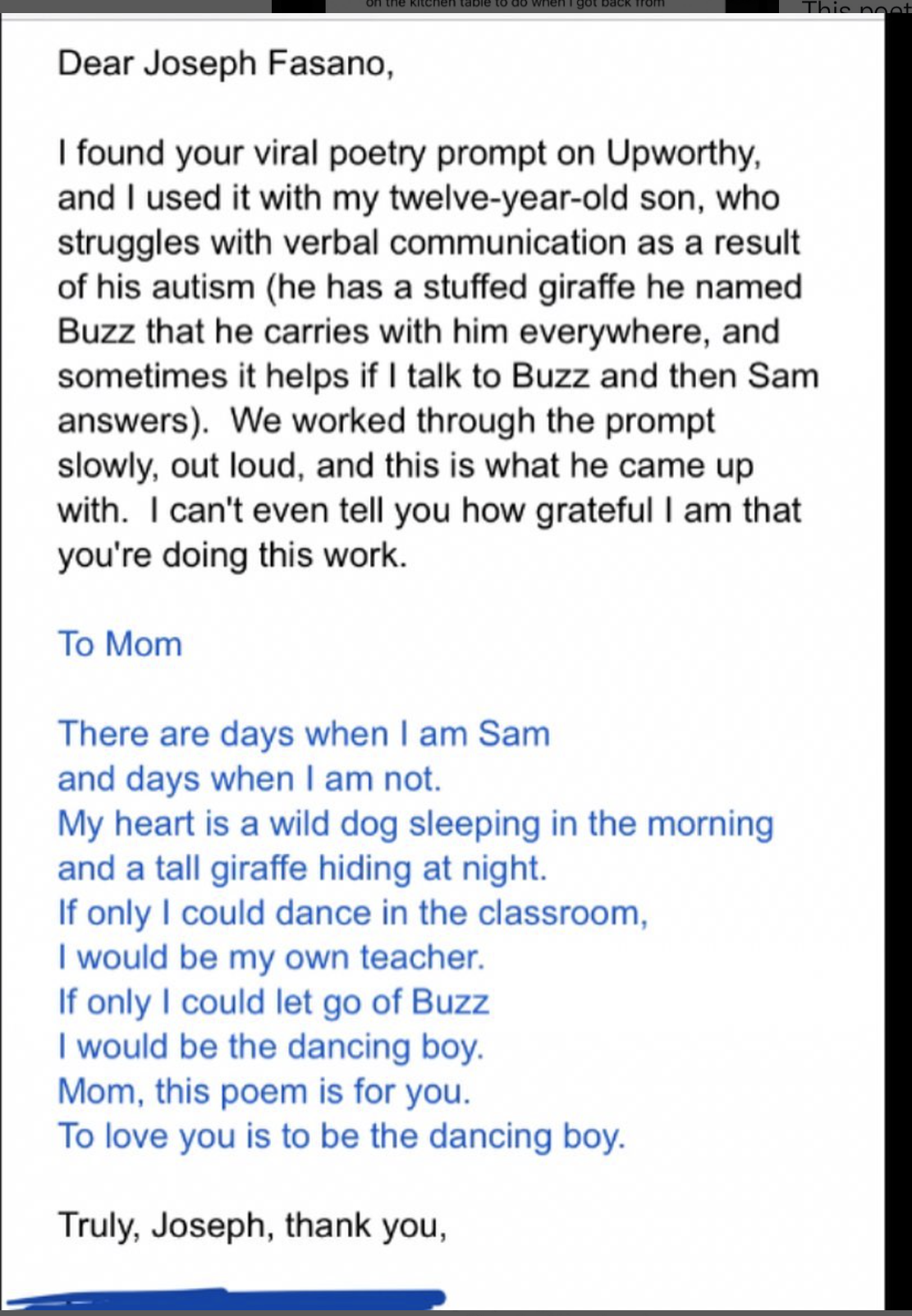[ad_1]
I saw a friend share a poem a student wrote using a prompt from poet, novelist, and songwriter Joseph Fasano on Instagram the other day.
Then another friend shared a poem they’d created with one of his prompts.
Then someone else I know shared one of Fasano’s own poems.
We love that Fasano’s poetry is catching on like wildfire. His prompts are simple, easy to use, and create such wildly different tones and themes depending on the individual completing the poem. You can see how effective these prompts would be in building students’ confidence, especially in an area like poetry where many students come in shouting the “I can’t write poetry” party line.
For instance, here’s a poetry prompt about grief Fasano posted:
GRIEF POEM (Title)
I miss your smell of (noun).
I miss your voice like (adjective) (noun).
I miss your hands like (adjective (noun) (verb)ing in the (noun).
But I know that living means (verb)ing.
And I want to live. I want to (verb).
And you, (name), I want you to be the (adjective) (noun).
Go, be the (repeat the adjective and noun from the previous line).
And here’s the beautiful poem 9-year-old Mason wrote in response about the passing of his beloved dog:

Here’s another prompt, simply called My Poem:
MY POEM (Title)
My name is (name).
Today I feel like a/an (adjective) (noun) (verb)ing in the (noun).
Sometimes I am a/an (noun).
Sometimes I am a/an (noun).
But always I am (adjective).
I ask the world, “(question)?”
And the answer is
a/an (repeat your words from line 2)
Fasano recently shared this poem written by a Ukranian 10-year-old, noting that it was sent by her mother, who is schooling her at home during air raid alerts:

I’m not crying—we’re both crying.
Here’s another prompt:
POEM TO MYSELF (Title)
No one knows the (animal) that (verbs) in me.
No one knows my heart is a/an (adjective) (noun) I carry through the (noun) toward the (noun).
No one knows the (noun) I softly (verb).
But I do. I do.
I will wake today and (verb) my (noun).
I will walk today and (verb) the (noun).
I will (verb) until I (verb) the (noun).
(Repeat pink animal), (repeat blue verb three times).
And here is 11-year-old Lachlan’s incredible response:

There’s this untitled prompt about self-expression:
(Title)
There are days when I am (my name)
and days when I am not.
My heart is a/an (adjective) (verb)ing (noun) in the morning
and a/an (adjective) (verb)ing (noun) at night.
If only I could (verb) in the (noun),
I would be (adjective).
If only I could let go of (noun),
I would be the (verb)ing (noun).
(Someone’s name), this poem is for you.
To love you is to be the (repeat blue words).
And this response from 12-year-old Sam, whose ASD makes communication a struggle sometimes. Sam’s mom shares that he carries a stuffed giraffe named Buzz that he carries everywhere:

Fasano is helping people all over the world find their voice, and for that, we’re grateful.
We think these prompts would make an amazing back-to-school assignment, a way to help reluctant writers or students who have trouble communicating, or a confidence-building activity to launch a poetry unit.
Here’s how to follow Joseph Fasano on Instagram and Twitter so you can, like me, watch his feed like a hawk to preorder his book.
Here’s his latest prompt:
AFFIRMATION POEM (Title)
Let the (noun) be (adjective).
Let the (noun) be (adjective).
Let every (noun) inside me find its (noun)
and (verb) (adverb), (adverb) toward this world.
I have a story I have never told:
Once, when I was (adjective),
I looked up at the (noun) and saw the (noun)
and knew I was a (noun) made of (noun).
I am still a (repeat green noun) made of (repeat yellow noun).
What will you or your students create?
How are you planning on using these prompts? Let us know in the comments!
Plus, for more articles like this, be sure to subscribe to our newsletters.
[ad_2]
Source link
